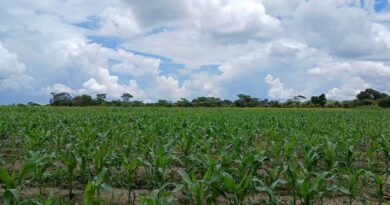Zimbabwe and Cambodia Demonstrate Strong Returns from Investments in Tackling Antimicrobial Resistance
Efforts to combat antimicrobial resistance (AMR) in Zimbabwe and Cambodia are delivering significant health and economic benefits, according to new insights shared during the 5th Annual Global Media Forum on AMR.
AMR – driven by the misuse and overuse of medicines in human health, animal health, agriculture, and the environment – remains one of the world’s most pressing public health threats. Although more than 90% of countries have developed national AMR action plans, only a small fraction have the resources to implement them.
To address this gap, the United Nations’ AMR Multi-Partner Trust Fund (MPTF) was established in 2019 to support low- and middle-income countries in rolling out multisectoral, One Health responses to AMR. Global leaders have committed to ensuring that at least 60% of national AMR plans are fully funded and implemented by 2030.
In Zimbabwe, MPTF support has revived the domestic production of the BOLVAC vaccine to tackle tick-borne diseases in livestock, reducing antibiotic misuse and protecting a key part of the agricultural economy. The introduction of the typhoid conjugate vaccine has also led to a dramatic fall in typhoid cases—from 1,373 to 341 per 100,000—while cutting treatment costs and reducing drug resistance.
Dr Tapfumanei Mashe of WHO Zimbabwe highlighted that these gains have strengthened AMR surveillance across human, animal, and environmental sectors. The country is now monitoring antimicrobial quality and resistance trends more effectively.
In Cambodia, MPTF investment has enabled the transition from a fragmented AMR response to a coordinated One Health governance framework. Funding has helped build laboratory capacity, train veterinarians and animal health workers, and establish data systems that meet international standards. Cambodia’s strengthened AMR infrastructure has also helped unlock a further US$34 million in development financing.
Dr Makara Hak of the FAO in Cambodia said the MPTF has been pivotal in enabling regular multisectoral coordination and accelerating implementation of the country’s AMR plan. Cambodia has since endorsed a second-phase AMR action plan running from 2025 to 2030.
Global experts emphasised that the MPTF is safeguarding lives, livelihoods, and essential medicines by helping countries strengthen surveillance, improve infection prevention, and promote responsible antimicrobial use. The European Commission, a major supporter of the fund, described it as a “smarter model for aid” that avoids duplication and aligns directly with country priorities.
With antimicrobial resistance threatening the future of modern medicine, global health leaders warn that sustained and expanded financing is essential. Investing in mechanisms like the MPTF, they argue, is not only a health imperative but a sound economic investment for long-term resilience.



